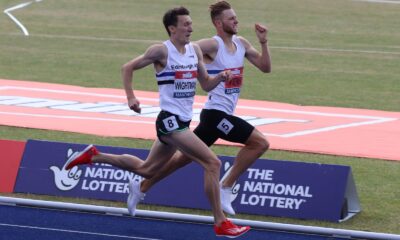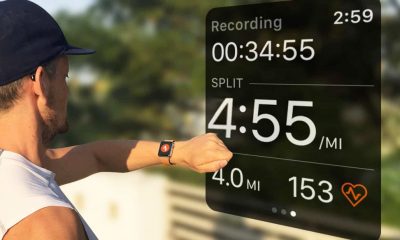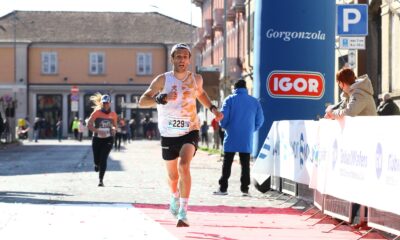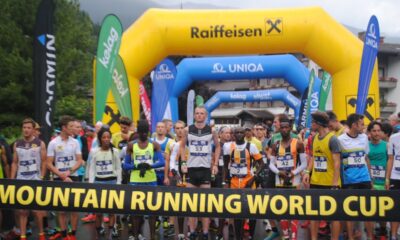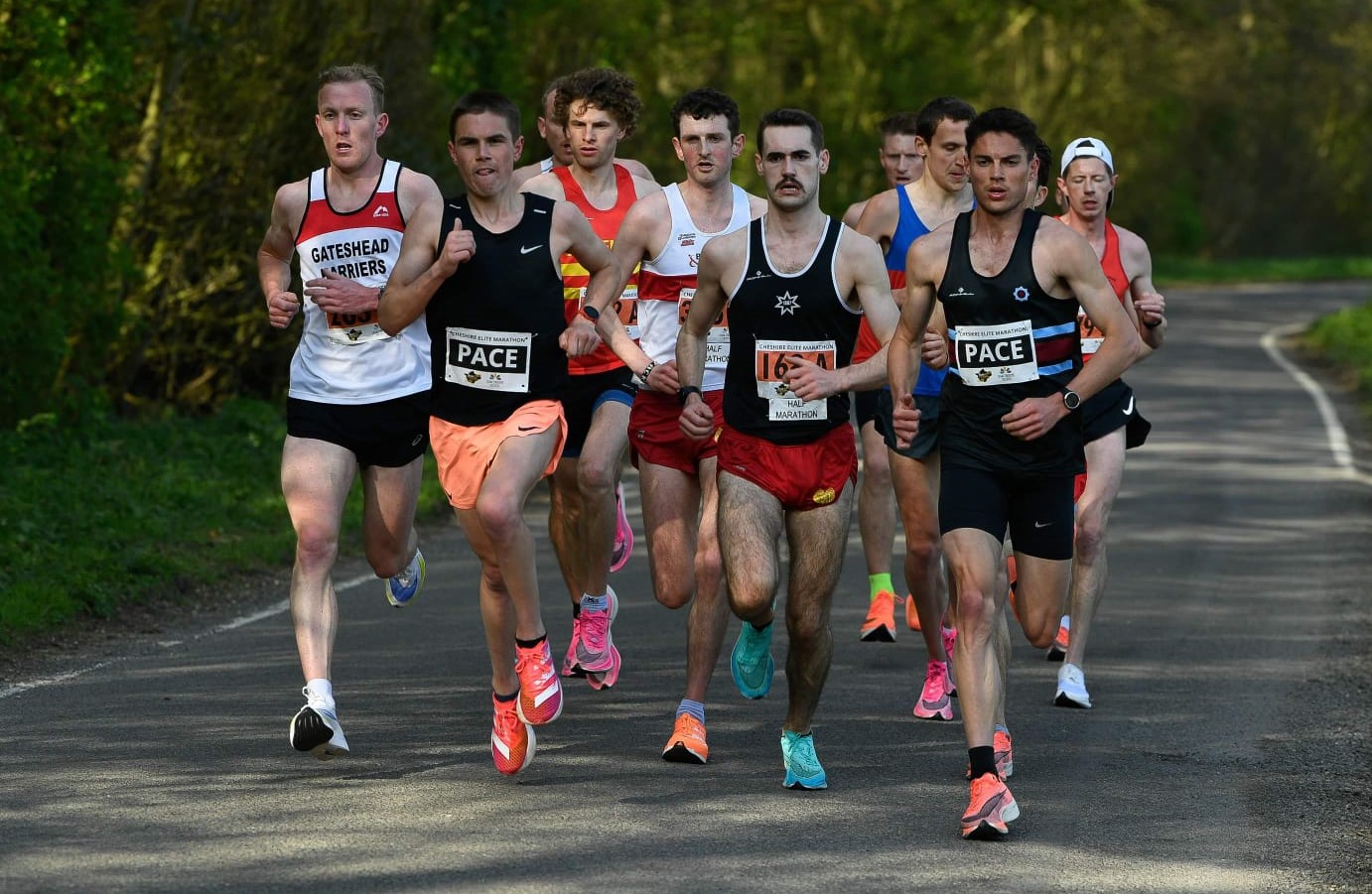
Two months after the event, and back in to training, seems about the right time to reflect on the mid-Cheshire (originally Wrexham) marathon, say’s Anthony Hatswell.
How to best summarise something so long in the making, and so wide reaching? I can’t do better than use the words of Chris Brasher, founder of the London marathon ‘the success of the Marathon, is that when it’s all over all the painful stuff will be forgotten and the competitor will say, “Christ that was good.” That about sums it up.
Going back to when the race was announced, it was in the depths of lockdown, London had been cancelled, and we all faced so much uncertainty.
This event was among the first to put on a plan for a return – named the Wrexham Elite Marathon (2.40 qualifying time for men, 3.00 for women). It didn’t happen how it intended (delayed from October, to later in October, to then finally April), but the organisers pulled it off eventually with the event going ahead very successfully on the 25th April.
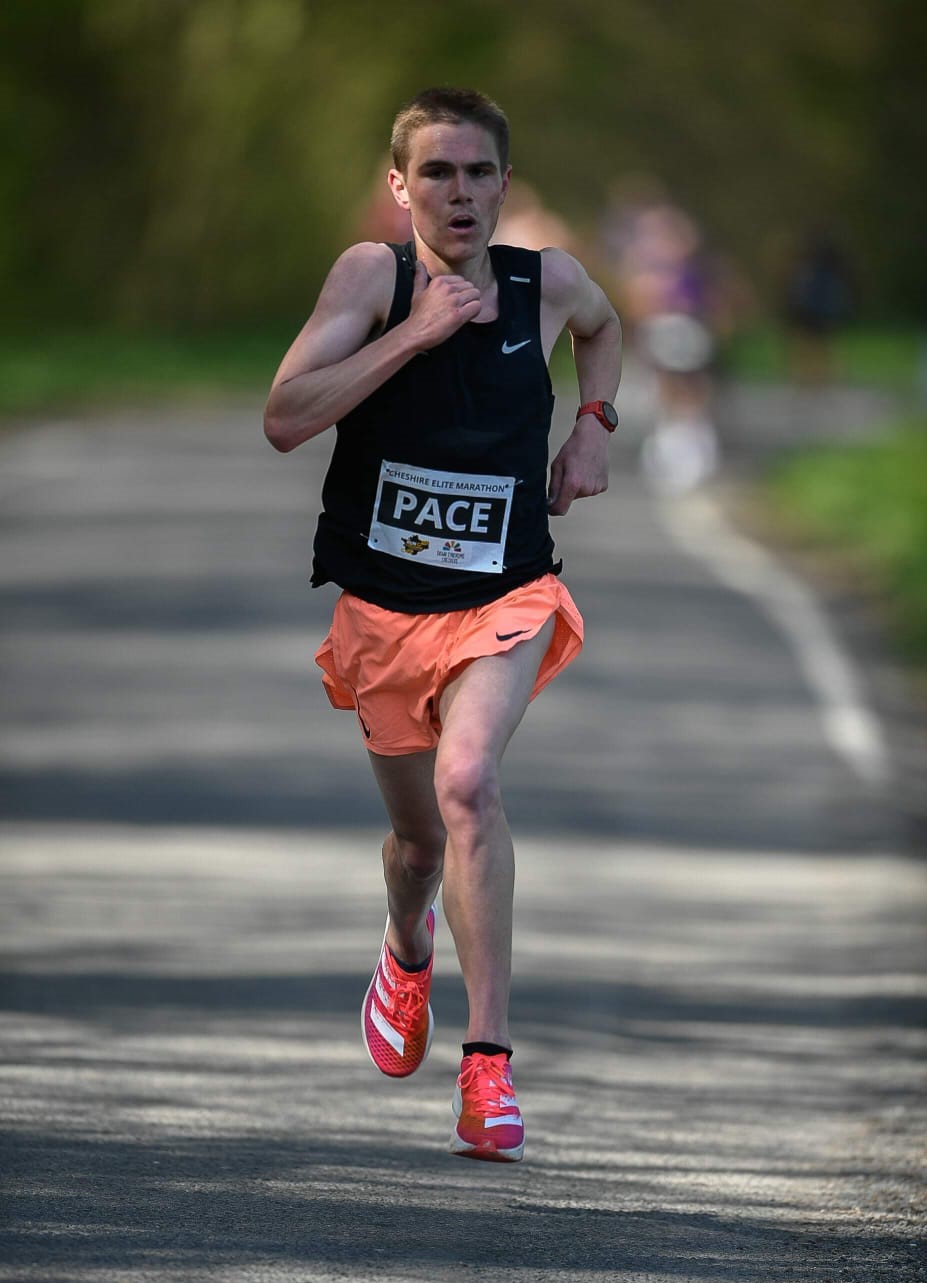
Jake Smith with his now famous pacer bib. Photo: Mick Hall
An impact beyond our small sport
If you’ve seen any running media, the pacer and ultimate winner, Jake Smith, has really been catapulted to fame by it. To focus on just one [amazing] performance though would really be doing a disservice to the event the organisers put on, and the atmosphere the runners and volunteers created.
Over the weekend, a small village in Cheshire – Pulford – had a huge number of runners, partners, and support descend. If you looked around a pub or cafe, you could see tables of skinny people wearing sports gear, looking serious.
Rather than being wary or standoffish though, there was always a smile, and a wave. That relief to be back in a race atmosphere with something to test yourself at really did permeate the entire atmosphere. After all we spend a lot of time as runners training – but we train to race, not train to train. This was a time to see what you’d achieved over the past 15 months.
PBs for everyone involved… nearly
Beyond the excitement to be back however, there was something more – those there had clearly spent a lot of time training (and bought a lot of fancy new shoes – myself included), and so were desperate for a chance to show it.
From the assembly area forwards people were really working together to share the pace, and run quick. Running might be an individual event, but as we now can confirm a virtual race of 4 miles on a former canal, is no match for the real thing.
This collegiate atmosphere shows in the results. Despite it already being a quick bunch entered, 109 of the 155 finishers came away with PBs, which holds however you cut it – 8 of the top 10, 19 of the top 25, and so on. These weren’t easy PBs either, there were 125 under 2.45, and 49 under 2:30.
How was the race organised?
In probably the best template I’ve seen for a mass event in the Covid world, waves of ~20 people went off every 10 seconds.
This actually worked better for fast running than an actual mass start – being seeded, everyone around you had a very similar target time. You had some runners catch you from behind, and if you felt good, people starting to string out on the road ahead to catch.
As a whole though, at this level people were honest with themselves about their time, which led to some really strong groups and far more company than you normally would at an actual mass start (not to mention you just not getting this many quick people at most races).
The course of a 3 mile loop meant drinks were plentiful, and family could see people multiple times. Allow proper spectating post-COVID and it really could have a Highgate Night of the 10,000 vibe about it.
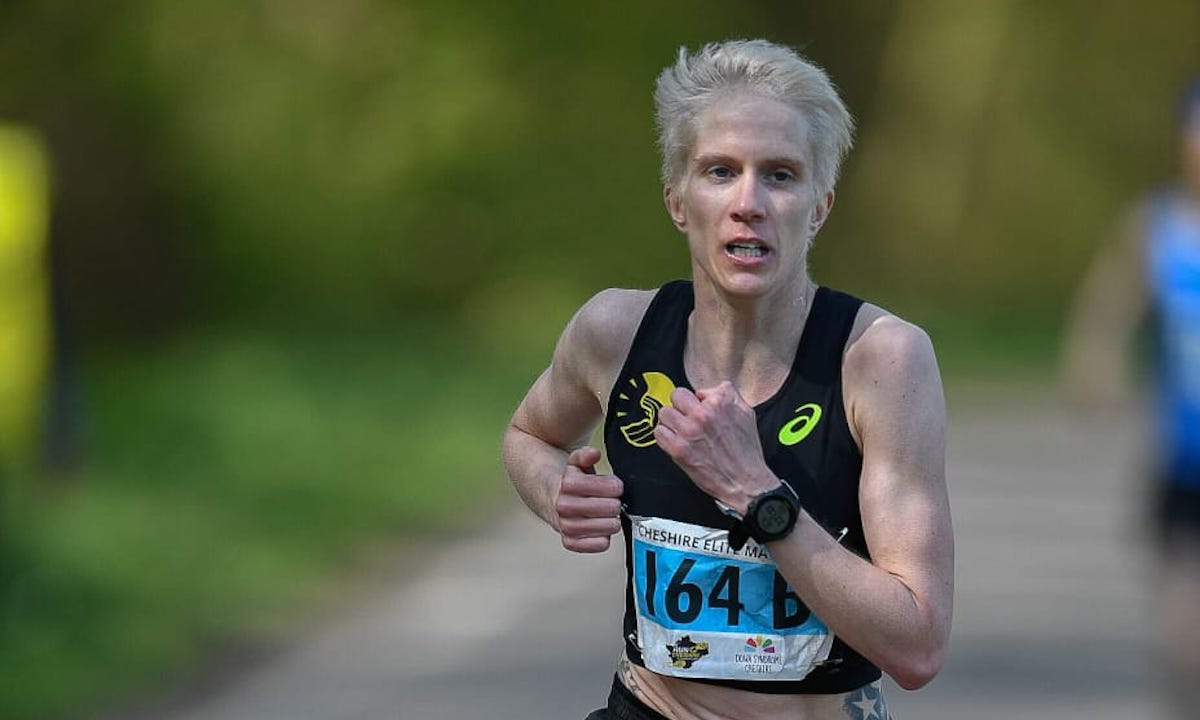
Aoife Cooke with the more traditional number on her bib. Photo: Mick Hall
So, was this truly an elite event?
Not really. Although there people going to the Olympics because of it (Aoife Cooke for example), it didn’t have an elitist or even competitive atmosphere.
Speaking to people you did ask their target/time, but there was no sense of superiority. You knew everyone there – whether 2.20 or 2.45 as a target was training hard, and making same sacrifices you were to be there.
All of us were just trying to see how far their talent could take them. That selection criteria made it much more akin to the Boston Marathon in the US, where it’s a group of likeminded folk, and a love of running. A sense of belonging, rather than competing.
The big question from me is how, as a community, do we bottle that atmosphere, and carry it forwards?
We’ve lost so much in the last year, it would be a shame not to keep one of the few good things and have something similar to aim for and celebrate in the future. With the constant tightening of the Marathon Majors qualifying criteria, a race to try and hit those times could work, and for those after a time, a race that is on a much faster course than London and without the travel of Berlin/Chicago (especially with COVID) could have a place?
A chance to be a part of something special
More generally, I’m so happy to have had a chance to be a part of something special. I made some good friends and I’d love to have that back.
Yes it was a race, but really it was a running festival where we all got to work together in a time trial. I saw so many I know from other races around the country, and others I’ve seen on results / youtube, and so on.
As much as I can’t wait to be racing in my local summer league, and getting the train to Blackheath for the start of the London Marathon, it would be a shame if that group atmosphere isn’t recreated.
How might this happen?
The obvious two would be if the organisers of mid-Cheshire (who were excellent throughout) try and carry it forward.
They’ve done it once, and the community embraced it – the challenge is where in the calendar. The other (not mutually exclusive) option, would be if we got a trials race for major events in the UK.
It happened at Kew, and objective standards on who gets to run would give, again, a sense of achievement in making it. The US marathon trials are an amazing event, can we do it better than the Americans? That’s how the London Marathon started – seeking to emulate and improve on New York.
Every 2/4 years (depending on when events are to qualify for), and a marker that’s achievable with a lot of training, but far from trivial (2:25-2:35 for men, and 2.50-3:00 for women?
As for my own race, how did that go? Great! With a limited word count though, the event deserves them all – if curious I’ve attempted my first youtube video here. #bekind. Again a massive thanks to the organisers, volunteers, and runners for making it a truly memorable weekend.
The editors can add extra words, so well done to Anthony on his 2:30:52 at the Cheshire Elite Marathon, an almost eight minute personal best.












